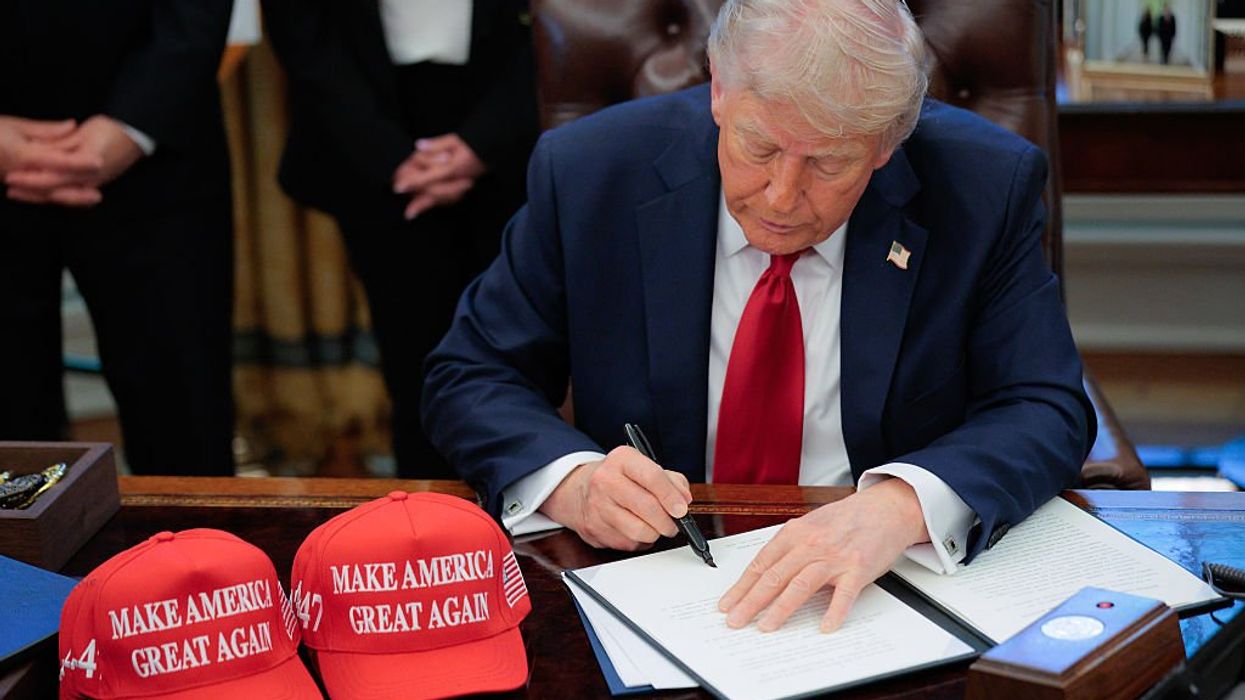A committee part of the General Services Administration (GSA) focused on efficiency has been eliminated by the Department of Government Efficiency (DOGE).
The GSA Federal Advisory Committee’s (GAP FAC) goal was to increase efficiency in the government through the responsible use of artificial intelligence (AI) with its members being experts who volunteered their time for GSA. Nicole Darnall, a former member of the committee and the Arlene R. and Robert P. Kogod Eminent Scholar Chair in Sustainability at American University, said the termination of the committee was “unexpected,” especially given their emphasis on increasing efficiency in the government.
“There was no indication this was going to happen,” Darnall said.
The GAP FAC was partly established due to the Federal Advisory Committee Act (FACA) of 1972, which is the “legal foundation” for how committees, like Darnall’s, operate. FACA is reenacted every so often, with the last being on Dec. 27, 2022.
“[A committee] is established or utilized to obtain advice or recommendations for the President or one or more agencies or officers of the Federal Government,” FACA stated.
Before its total termination, the GAP FAC had two committees with two subjects. The first GAP FAC, founded in 2022, focused on increasing sustainability efforts in the government. Darnall, who is an expert in sustainability, was asked to join then. The second committee, which began in around October right before the 2024 presidential election, was the one studying how to responsibly use artificial intelligence in the government to increase efficiency.
According to the law, the over 1,000 FACA advisory groups, including the GAP FAC, have to follow certain rules like allowing their meetings to be open to the public by publishing meeting information on the Federal Register for at least 15 days.
The law also states committees can only be established for two years after which they are terminated or renewed.
“It’s sanctioned by Congress, so it’s very official,” Darnall said.
Darnall said members of the committee received an email on Feb. 25, explaining the reasoning for determination. The letter did not come from DOGE but rather from a senior official at GSA:
“On February 19, 2025, the President issued an Executive Order, “Commencing the Reduction of the Federal Bureaucracy,” which set forth the Administration’s policy of reducing the size of the Federal Government in order to minimize waste, fraud, abuse, and inflation and to promote American freedom and innovation. As part of that Executive Order, the President directed the termination of several named Federal advisory committees and further ordered the identification of ‘additional unnecessary Federal advisory committees’ for termination. In accordance with that order, the Acting GSA Administrator has terminated the GAP FAC.”
Along with Darnall and the 19 other members of GAP FAC, over 121,000 federal employees have been laid off since Trump took office in January, according to an analysis from CNN.
FACA states there are certain ways committees can be disbanded by the president. The president is allowed to terminate any on-statutory federal advisory committee, or not established or mandated by a law. Presidents can also disband committees if they were created by their own executive order. But the president cannot terminate a committee because it is required by law.
The GAP FAC is a statutory committee, meaning it was established by law.
Those who sent a letter to members of the committee, saying their work was no longer needed, did not respond to comment.
Besides Darnall, a former member of the GAP FAC, who is an expert in artificial intelligence governance and wanted to remain anonymous for privacy reasons, was brought on at the beginning of the second committee.
Although GAP FAC’s advising in artificial intelligence was only beginning, the member said they were “disappointed” the committee did not get to do the work they planned in preliminary meetings.
The member said they believe the committee was cut because of the Federal Acquisition Regulation (FAR) or how everything is going to be purchased by the federal government. The member added the new administration wants to redo FAR and the committee’s recommendations were going to get in the way.
A policy statement from the Department of Homeland Security states how they use artificial intelligence must align with ethical, legal, and regulatory standards outlined in the FAR with this same standard applying to other government agencies and departments.
“You are much stronger when you have multiple voices weighing in,” the member said. “Even if there’s disagreement, you still get a broader perspective on all the opportunities to consider.”
The member added there are “high-risk areas” where artificial intelligence can be abused in the government. For example, they said civil rights issues come into play when making an algorithm to ensure it does not discriminate against gender or race.
“I’m really concerned because I’m an AI expert,” the member said.
Maggie Rhoads is a student journalist attending George Washington University School of Media and Public Affairs. At The Fulcrum, she covers how legislation and policy are impacting communities.




















Trump & Hegseth gave Mark Kelly a huge 2028 gift